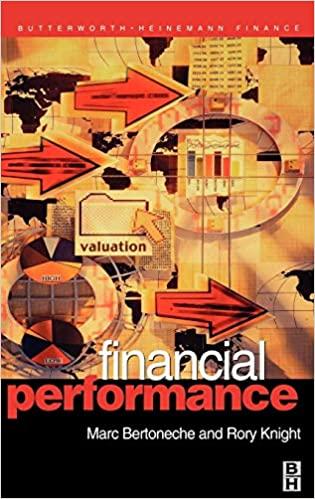Answered step by step
Verified Expert Solution
Question
1 Approved Answer
4.5. To find the present value of a cash flow expected to be paid or received in the future, you will the future value cash
4.5. To find the present value of a cash flow expected to be paid or received in the future, you will the future value cash flow by (1+r)n1+rn. What is the value today of a $42,000 cash flow expected to be received four years from now based on an annual interest rate of 8%? $57,141 $30,871 $24,697 $38,589 Your broker called earlier today and offered you the opportunity to invest in a security. As a friend, she suggested that you compare the current, or present value, cost of the security and the discounted value of its expected future cash flows before deciding whether or not to invest. The decision rule that should be used to decide whether or not to invest should be: everything else being equal, you should invest if the discounted value of the securitys expected future cash flows is greater than or equal to the current cost of the security. everything else being equal, you should invest if the current cost of the security is greater than the present value of the securitys expected future cash flows. everything else being equal, you should invest if the present value of the securitys expected future cash flows is less than the current cost of the security. Now that youve thought about the decision rule that should be applied to your decision, apply it to the following security offered by your broker: Jing Associates, LLC, a large law firm in Denver, is building a new office complex. To pay for the construction, Jing Associates is selling a security that will pay the investor the lump sum of $10,250 in four years. The current market price of the security is $8,674. Assuming that you can earn an annual return of 5.25% on your next most attractive investment, how much is the security worth to you today? $8,353 $9,606 $8,771 From strictly a financial perspective, should you invest in the Jing security? No Yes Why or why not? Because the cost of the security is greater than the discounted value of the securitys future cash flows. Because the discounted value of the securitys future cash flows is greater than the cost of the security.
To find the present value of a cash flow expected to be paid or received in the future, you will the future value cash flow by (1+r)n1+rn.
What is the value today of a $42,000 cash flow expected to be received four years from now based on an annual interest rate of 8%?
$57,141
$30,871
$24,697
$38,589
Your broker called earlier today and offered you the opportunity to invest in a security. As a friend, she suggested that you compare the current, or present value, cost of the security and the discounted value of its expected future cash flows before deciding whether or not to invest.
The decision rule that should be used to decide whether or not to invest should be:
everything else being equal, you should invest if the discounted value of the securitys expected future cash flows is greater than or equal to the current cost of the security.
everything else being equal, you should invest if the current cost of the security is greater than the present value of the securitys expected future cash flows.
everything else being equal, you should invest if the present value of the securitys expected future cash flows is less than the current cost of the security.
Now that youve thought about the decision rule that should be applied to your decision, apply it to the following security offered by your broker:
Jing Associates, LLC, a large law firm in Denver, is building a new office complex. To pay for the construction, Jing Associates is selling a security that will pay the investor the lump sum of $10,250 in four years. The current market price of the security is $8,674.
Assuming that you can earn an annual return of 5.25% on your next most attractive investment, how much is the security worth to you today?
$8,353
$9,606
$8,771
From strictly a financial perspective, should you invest in the Jing security?
No
Yes
Why or why not?
Because the cost of the security is greater than the discounted value of the securitys future cash flows.
Because the discounted value of the securitys future cash flows is greater than the cost of the security.
Step by Step Solution
There are 3 Steps involved in it
Step: 1

Get Instant Access to Expert-Tailored Solutions
See step-by-step solutions with expert insights and AI powered tools for academic success
Step: 2

Step: 3

Ace Your Homework with AI
Get the answers you need in no time with our AI-driven, step-by-step assistance
Get Started


